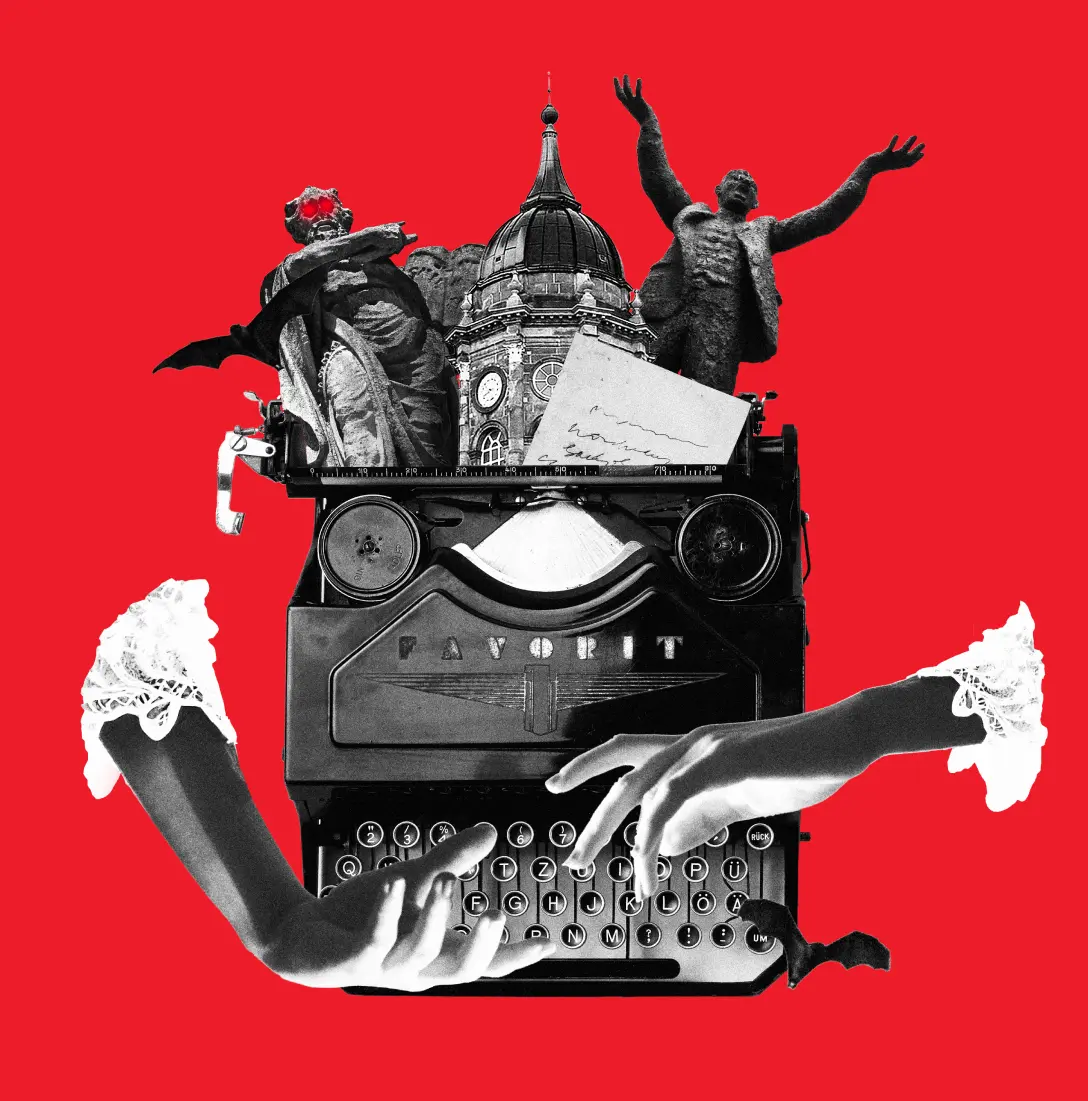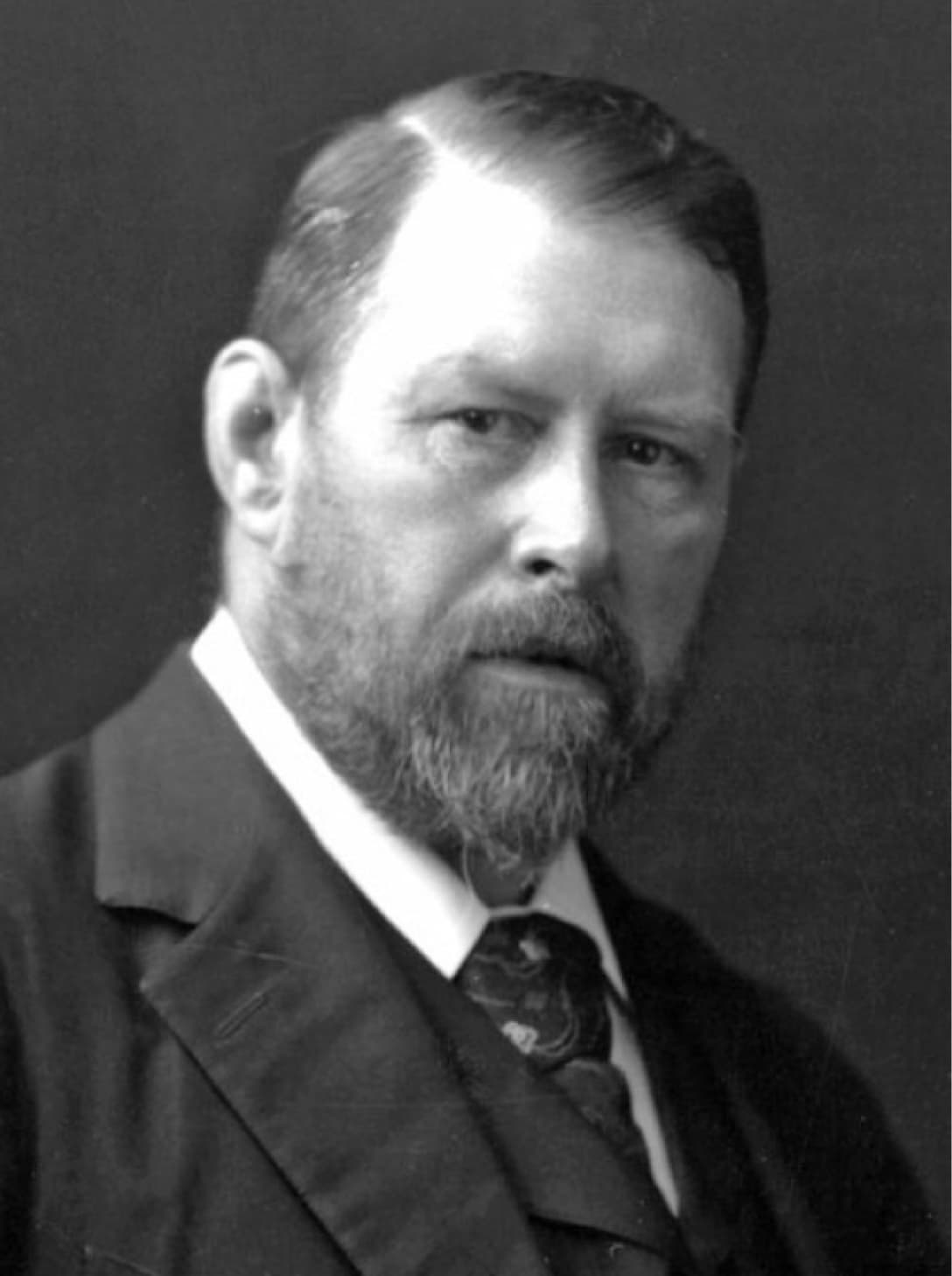The Festival
Dublin City Council Bram Stoker Festival celebrates the legacy of one of Ireland’s most beloved and iconic writers and is now one of Dublin’s largest arts festivals.
The festival draws inspiration from Stoker, his life, his work, the Dublin of his time and celebrates the Gothic, the supernatural, the after-dark and the Victorian. We’ve presented outdoor spectacles and intimate experiences, world film premieres and award-winning theatre productions; circus at night in dark forests; comedy in nightclubs; choral ensembles in darkened libraries and events spanning every genre.
We’ve taken over cathedrals, parks and squares; delved into Stoker’s literary impact, and entertained generations of little monsters with discos, workshops, face-painting, performances and more at Stokerland and beyond.
Dublin City Council Bram Stoker Festival is produced by Schweppe Curtis Nunn Ltd.




Bram in Six Revelations
Bram the eavesdropper
Stoker loved to record snippets of overheard conversations in his journal, and detailed a Dublin soaked in sardonic humour, strife, comedy and surreality. In one of his journal entries from April 1872, he wrote of a conversation overheard on Dublin’s streets, saying “Two medical students quarrelling with a man who had broken a bone of each, not for his ill deed or their pain but for injuring their skeletons.”. In September 1873 he wrote: “At the Lord Mayor’s banquet ice cream spoons ran short. One man of resource eat his with his eyeglass”.
Bram the civil servant
Stoker’s second published book was a guidebook for civil servants, which was the go-to read for new civil servants until the mid 1950s. The Duties of Clerks of Petty Sessions in Ireland was was considered to be the standard reference work for petty sessions (local courts dealing with minor criminal and civil cases) clerks in Ireland.
Bram the hero
In 1882, Stoker attempted to rescue a man drowning in the River Thames by leaping into the river… unfortunately, the man was not resuscitated. Reported in the Guardian in 2012: In 1882 Stoker jumped into the Thames in an attempt to save a drowning suicide victim. He carried the body to his home, hoping in vain that his brother, a surgeon, might revive him.
Bram the student
Bram founded the Dublin Sketching Club and served as President of the Trinity College Historical Society. At college, he was a keen athlete and excelled in rugby, race walking, rowing and gymnastics. He rowed for the Dublin University Boat Club and in June 1870, he excelled at a gymnastics event in Trinity, coming in first in putting the 42lb weight and the 16lb shot and first in an event combining vaulting, high jump and long jump with trapeze.
Florence Balcombe, Bram’s wife.
Stoker’s wife, Florence Balcombe, outlived her husband by 25 years, previously dated Oscar Wilde, and became embroiled in a legal dispute with the producers of Nosferatu – a fascinating person in her own right, it can be argued that the worldwide success of Dracula in pop-culture can be attributed to her tenacity in her legal battle.
Bram the society star
Stoker was witty and charming, popular in society and and was said to part dancefloors during glittering balls of the age when he took to the dancefloor, such was his skill! A society columnist of the day wrote: “ He was an excellent “party” young man, and of course, had always heaps of invitations [sic]. When he stood up to dance, he had a way of making a charge, which effectually cleared a passage through the most thronged ball-rooms. Everybody made way for Stoker… How my heart used to jump in my dancing days when Stoker asked me for a waltz!”.
You’ll find these and even more lesser-known facts in The Lost Journal of Bram Stoker, edited by his great grand nephew, and regular festival participant, Dacre Stoker.